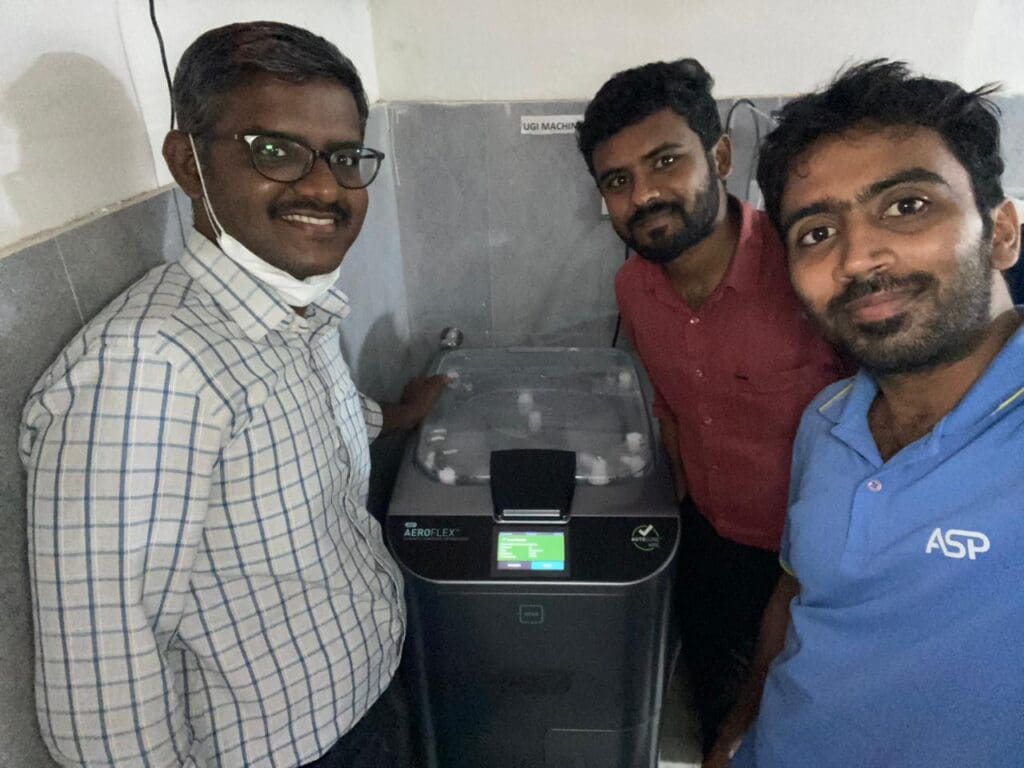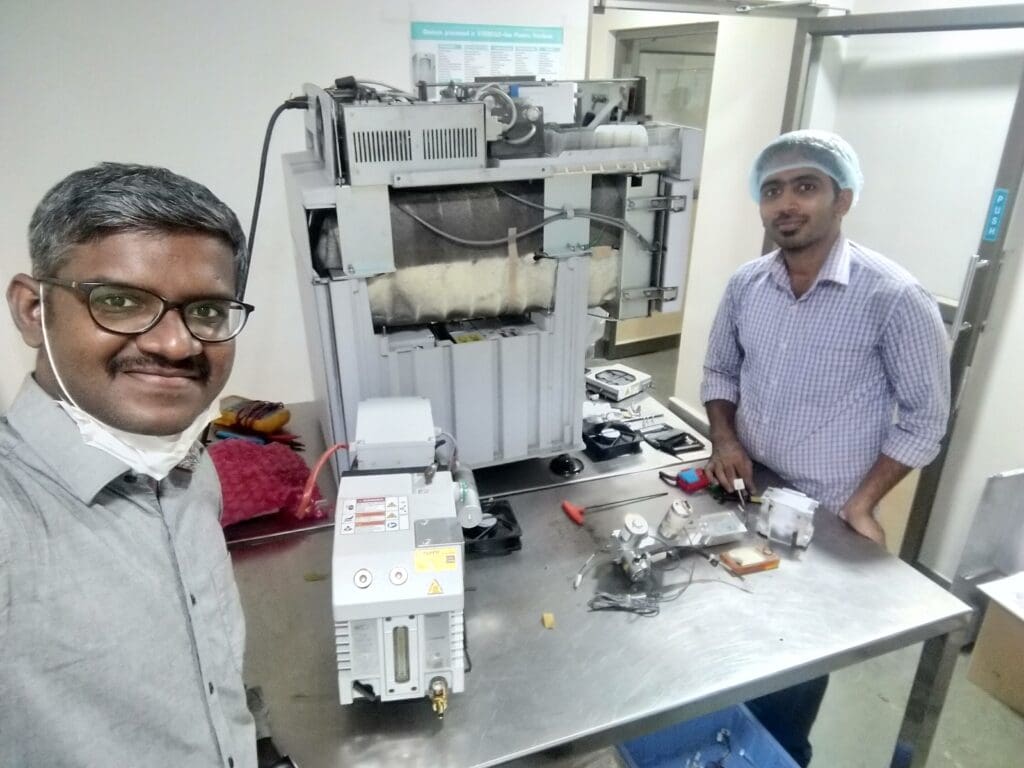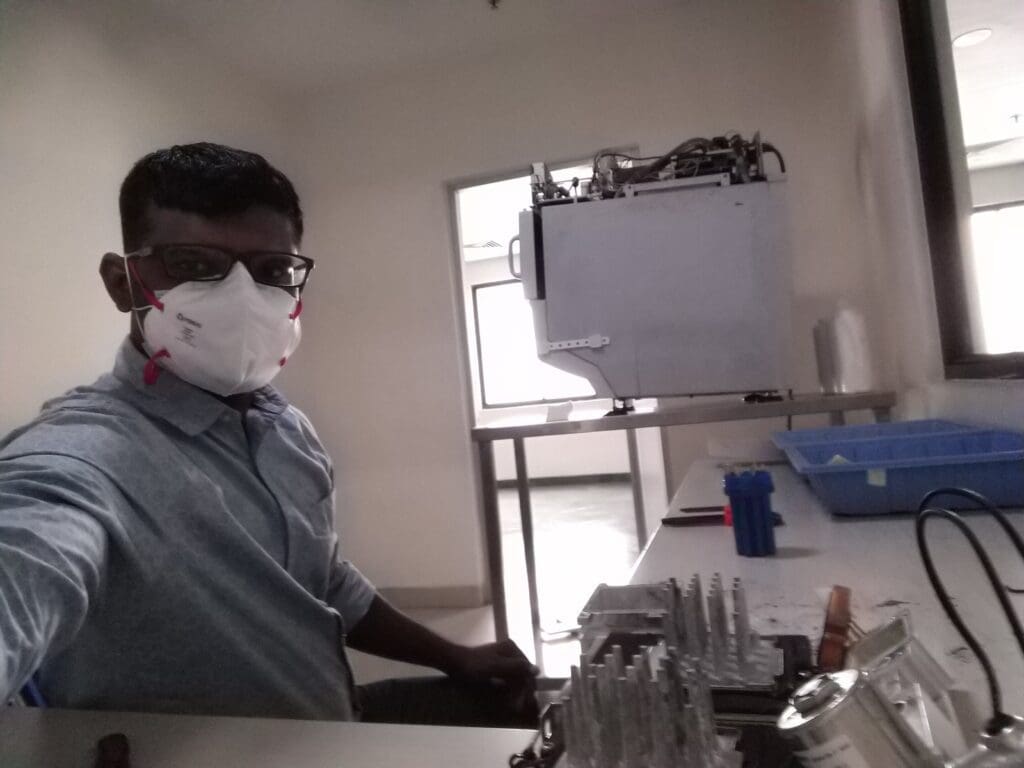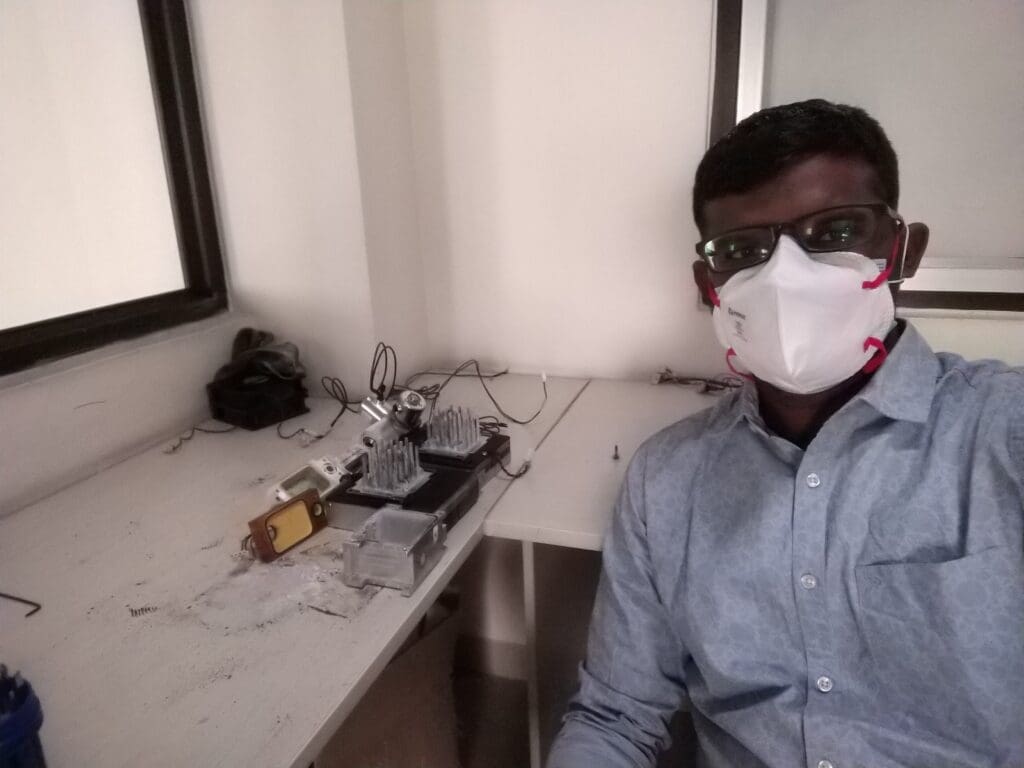Life of a A Field Service Engineer and Team Leader in India
Sivakumar A works for Advanced Sterilization Products (ASP). He is a Field Service Engineer and Team Leader and based in India. ASP is a global leader in infection prevention solutions for healthcare, with advanced products, technologies, and workflows for medical sterilization and disinfection. Fortive acquired ASP from Johnson & Johnson in 2019.
Sivakumar studied Biomedical Engineering and then whilst working gained an MBA in Operations Management from Anna University.
He is a service specialist and works by doing the right thing at the right time. He leads and encourages his team to do the same thing.
Here he shares his experience and background.


system
A Field Service Engineer and Team Leader for Advanced Sterilization Products in South India – meet Sivakumar A
Childhood interests
During my school days, I was very interested in science since this subject is purely based on understanding rather than memorizing.
I have always been curious to know what’s inside anything like a toy or a bike. I remember, adjusting a potentiometer of an old fan regulator with a screwdriver from my dad’s tool kit during my childhood days to see what would happen.
Studying
To feed my curiosity, I chose Engineering for my graduate degree. The majority of Engineering courses don’t have Biology in their curriculum which is one of my favourite subjects. Then I came to know about Biomedical Engineering. Interestingly, this course has all my favourite subjects in the curriculum like Anatomy, Physiology, Microbiology, Medical Physics, and Electronics too. I decided to have Biomedical Engineering as my first option though I also had Biotechnology on my list.
Typical Day as a Field Service Engineer in India
What is your typical day like at ASP?
I start my day with planning the CM (Corrective Maintenance) and PM (Preventative Maintenance) calls of the day.
A friendly interaction with my team is a key and vital part of my day. During our discussion we pick the calls based on the ease of access to each one of us, to minimise our required travel time.
I spend most (70%) of my day with my customers in the field. This helps me to understand their needs better and helps me to observe the machine and equipment during or after the service activity.
The most enjoyable part is connecting with the team in the field which makes me feel I am not far away from home.


Most Challenging part of the job
What are the main challenges of the job?
Field service is full of uncertainties. Sticking to the schedule itself is a big task because there are times where I have planned for Preventative Maintenance calls in a particular day, but none could be completed due to some hectic breakdown calls.
Managing two breakdown calls at a time when my colleague is on leave or already occupied with some other Corrective Maintenance is the most challenging part.
Being a medical field engineer my job is to keep the system up and running with zero unplanned down time since the medical equipment makes a significant impact in saving a patient’s life.
To avoid these kinds of unexpected breakdowns I always encourage customers to have scheduled down time. This can be at their convenience when there is no/low patient flow or when there are no/low surgeries etc. During this time, I can do my PMs and other routine inspections. Now, most of my customers have agreed to have a scheduled down time as I have explained the consequences of not doing the PMs on time.
Training and Explaining
I have been giving training to end users and junior engineers for the last seven years. I noticed that people did not always understand when I explained theoretically. Hence, I always conduct training in a practical way rather than in a classroom kind of way.
Whether it is technical or user training, I always conduct the training in such a way where the trainee can touch and feel the components of the machine.
Can you give an example of this?
For one of my ventilator training sessions, I dismantled the whole ventilator to core level to explain each subsystem.


What are the advantages of being a trainer?
The advantage of being a trainer is that you can get access to key resource materials for deep understanding of the concepts and a chance to interact with KOLs (Key Opinion Leaders). The questions raised by the audience will motivate you to widen your research on the concepts. This has even helped me in solving issues in the field.
Work life Balance
How do you maintain a work life balance?
One of the toughest jobs of being a field engineer, is to maintain the work life balance.
I was keen on one thing when I enrolled for my MBA which was not to compromise on my personal life. So, I planned all my activities with time blocking. That meant I could be productive in my academic, professional, and personal life. In addition, I prioritized all my tasks based on Eisenhower’s matrix. This tool allows me to allocate the tasks under two categories Urgent and Important. Urgent tasks will be attended to immediately, and Important tasks will be scheduled to be attended to on a particular day or time.
New Field Engineers
What advice would you give to Field Engineers who are starting their first job?
For the freshers, I would suggest:
constantly learning more about the industry in which they are working.
networking with other peers which is crucial as this will help on the career ladder.


Advice
What three key things does a very successful Field Service Engineer need to do?
Firstly, meeting customers is an inevitable part for every field engineer, and engineers should develop the ability to put themselves in the customer’s shoes to understand them.
Secondly, field engineers should develop a growth mindset as this will help them to move forward even after their worst setbacks.
Thirdly, developing adaptability will enhance their ability to face new challenges and find solutions in our VUCA (volatile, uncertain, complex and ambiguous) world.


Responses